Military veterans make excellent candidates for jobs in the civilian world. That’s especially true when it comes to resume skills like reliability, accountability, and problem-solving. In fact, more than 1 out of every 10 military members who leave active duty does so with plans to work in another field. Many go on to pursue their passions or interests, and some even find a career that plays to their strengths as a veteran. When you think about it that way, crafting your resume as a military veteran makes perfect sense. After all, the experience and training you receive while serving your country is often directly applicable to civilian careers. And since many hiring managers see resumes from military applicants slightly differently than other applicants because of their unique experiences, it’s essential that you understand how your resume should read as a military candidate — not just a job-seeker with work experience.
Military Resume Example

Download This Military Resume as PDF
Commander Resume Example
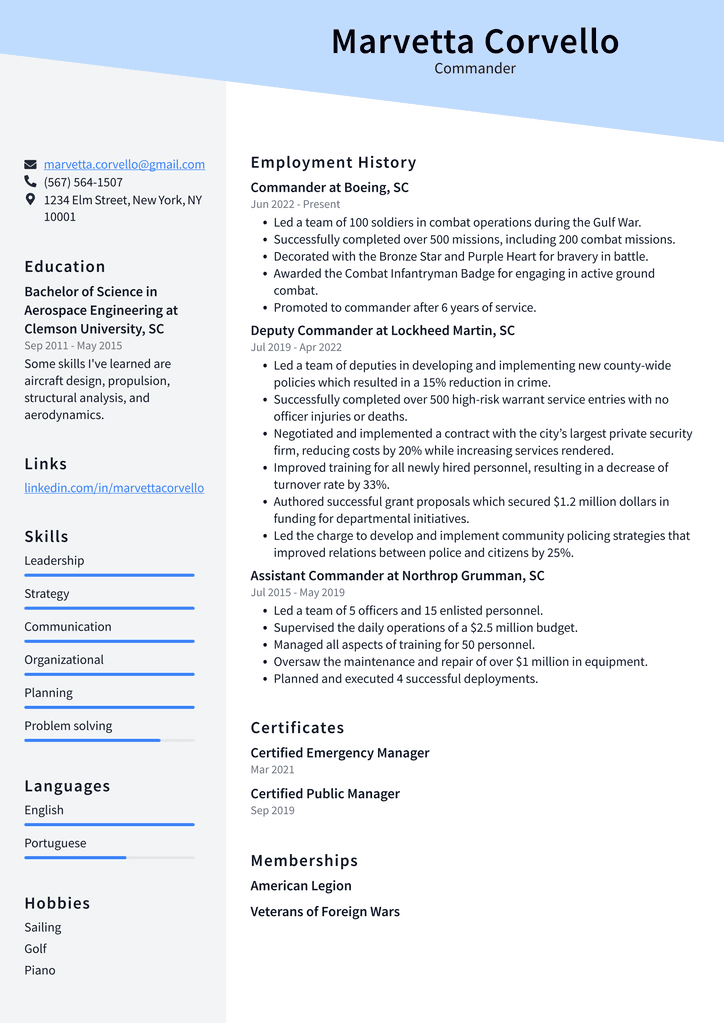
Download This Commander Resume as PDF
General Resume Example
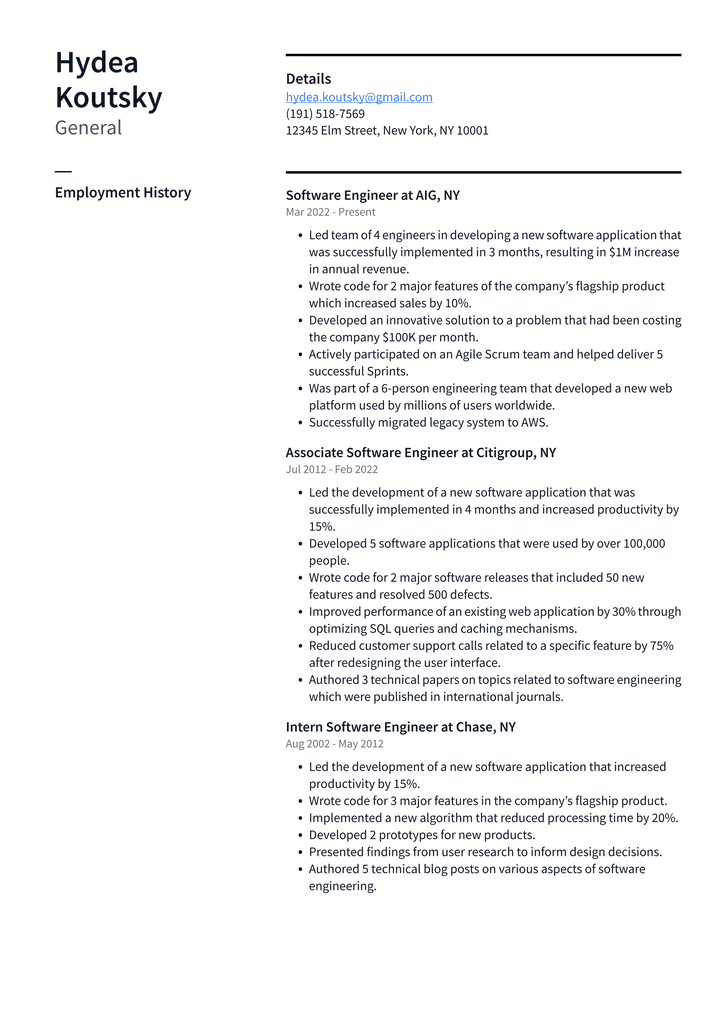
Download This General Resume as PDF
Admiral Resume Example
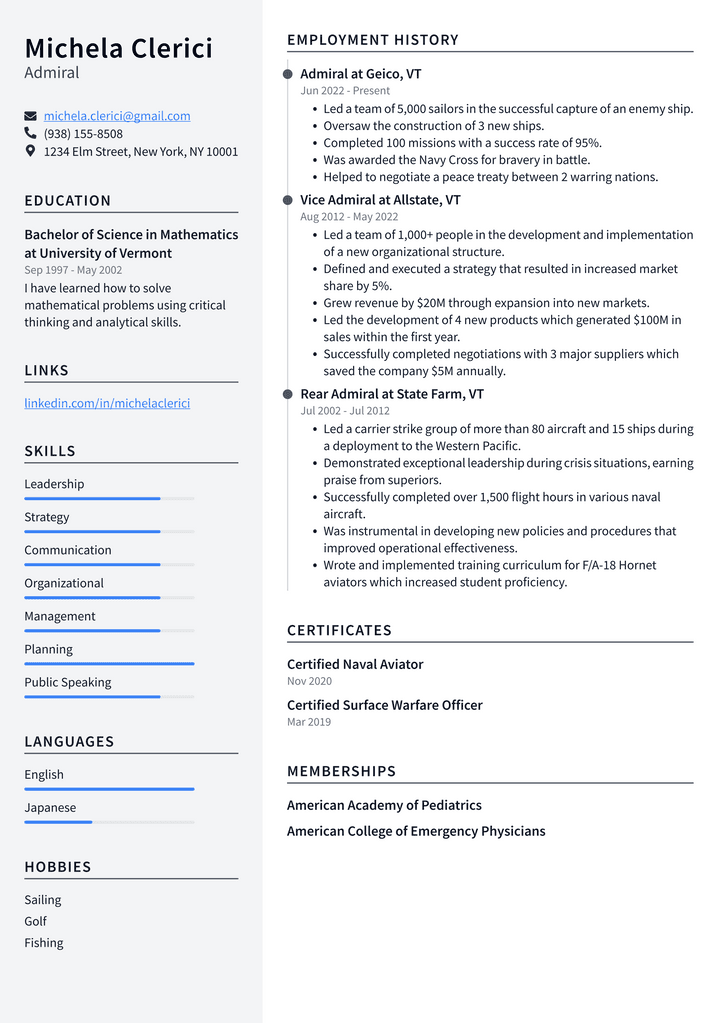
Download This Admiral Resume as PDF
Lieutenant Resume Example
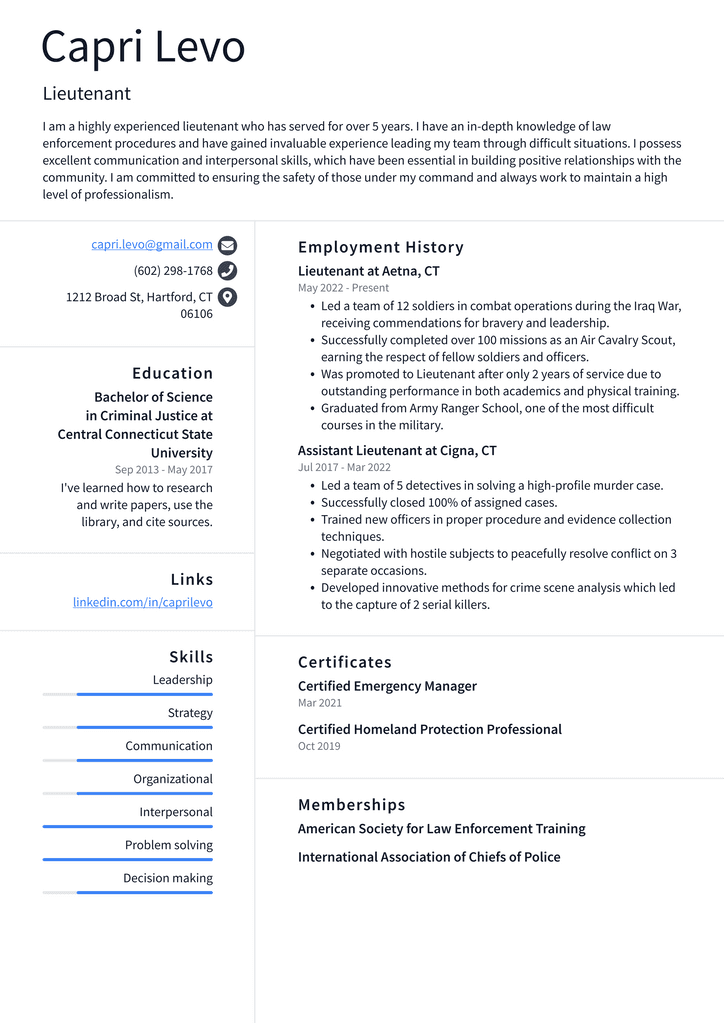
Download This Lieutenant Resume as PDF
Sergeant Resume Example
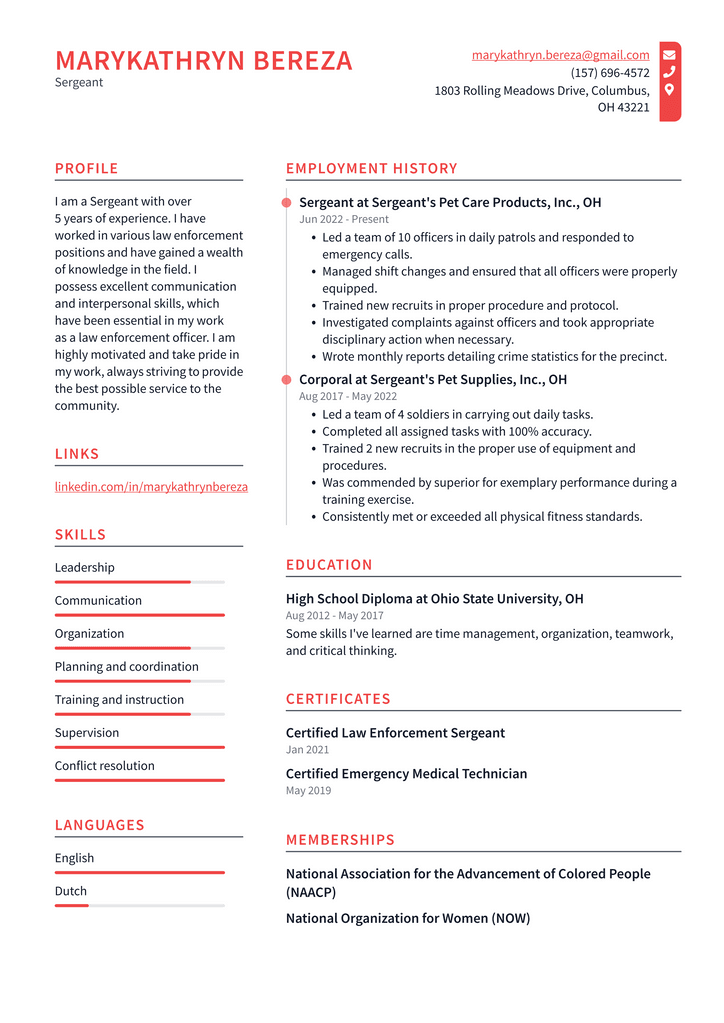
Download This Sergeant Resume as PDF
Captain Resume Example
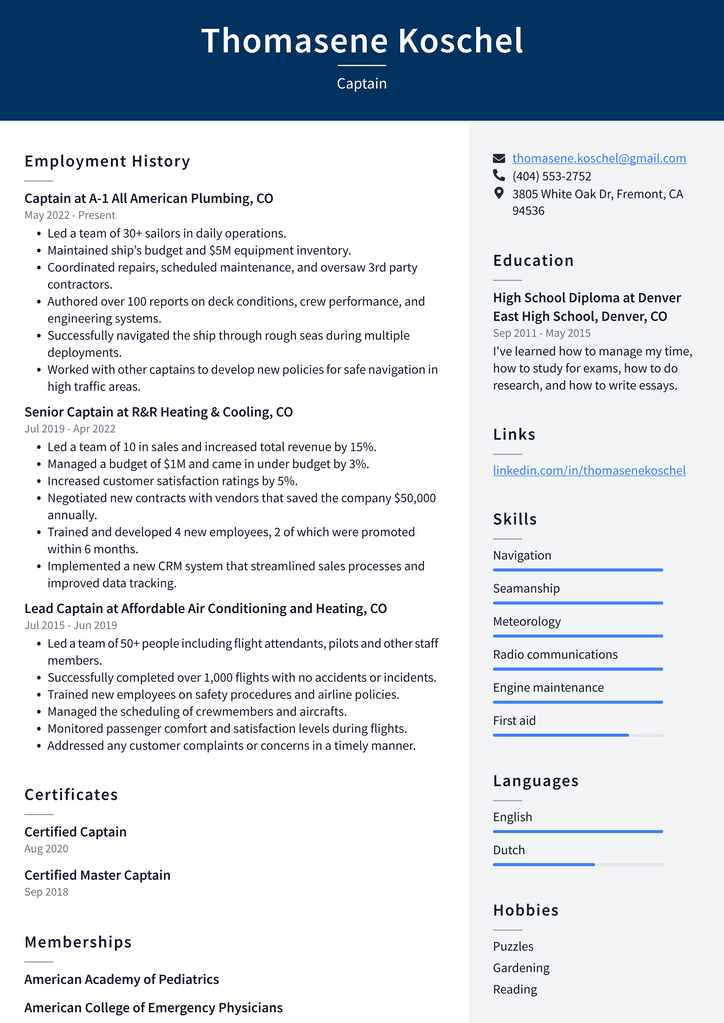
Download This Captain Resume as PDF
Resume Basics for Military Applicants
If you’re a military veteran, your resume may differ from a non-veteran’s in a few key ways. On the surface, there may not seem to be much difference between a military and a non-military resume. But there are a few unique considerations that you should keep in mind as you craft your resume and prepare for job hunting.
Military Resume Tips
– Recognize that your resume should reflect your rank. If you are still in the military, it’s important to know how your military rank will appear on your resume. In general, your rank should appear in the left-hand column of your resume, with your name above it. – Keep your focus on skills. When you’re transitioning to the civilian job market, it’s easy to focus on your job specifics. But hiring managers are more interested in your skills and abilities than what job you held. – Highlight transferable skills. The best way to make your military resume stand out from the crowd is to highlight transferable skills. When you do this, you draw attention to skills that are applicable to almost any industry. – Use a functional resume format. If you’re using a standard resume format, you should list your job history first. One exception is if you’re applying to jobs in the government. In that case, you should use a functional resume format.
Resume Objective for Military Applicants
The objective statement (also known as a career objective or summary statement) is often the first item that hiring managers read on your resume. It’s the first impression that you make on your potential employer. In many cases, it’s also the only part of your resume that a hiring manager will read. That’s why your summary statement needs to be short and sweet. No long-winded paragraphs here — just a few short sentences that give hiring managers a basic idea of who you are and what you do. For military resumes, an objective statement might look like this: Looking for a career that puts my leadership and communication skills to good use.
Resume Skills Development for Military Applicants
What sets a military resume apart from non-military resumes is the emphasis on skills development. What do we mean by that? Well, the military isn’t just about performing your daily duties. You are also focused on self-development. And it’s that emphasis on self-development that makes you such a desirable candidate for employers. – Department of Veterans Affairs
Resume Task Skills for Military Applicants
Task skills are your abilities to perform specific tasks or activities. What that means is that you will have a separate section of your resume for skills that are linked to specific tasks. For example, if you served as an aircraft mechanic for the Navy, your resume would include a skills section for aircraft mechanics. That’s different from transferable skills, which you would list in a different section of your resume.
Bottom line
A military resume is a powerful marketing tool that highlights your leadership and problem-solving abilities. It also shows your commitment to self-development, which is why hiring managers love veterans. In order to make the most of your military experience, you will need to familiarize yourself with the resume writing process. Each branch of service has its own unique requirements when it comes to resume writing. So be sure to keep those resume guidelines in mind as you write your resume.